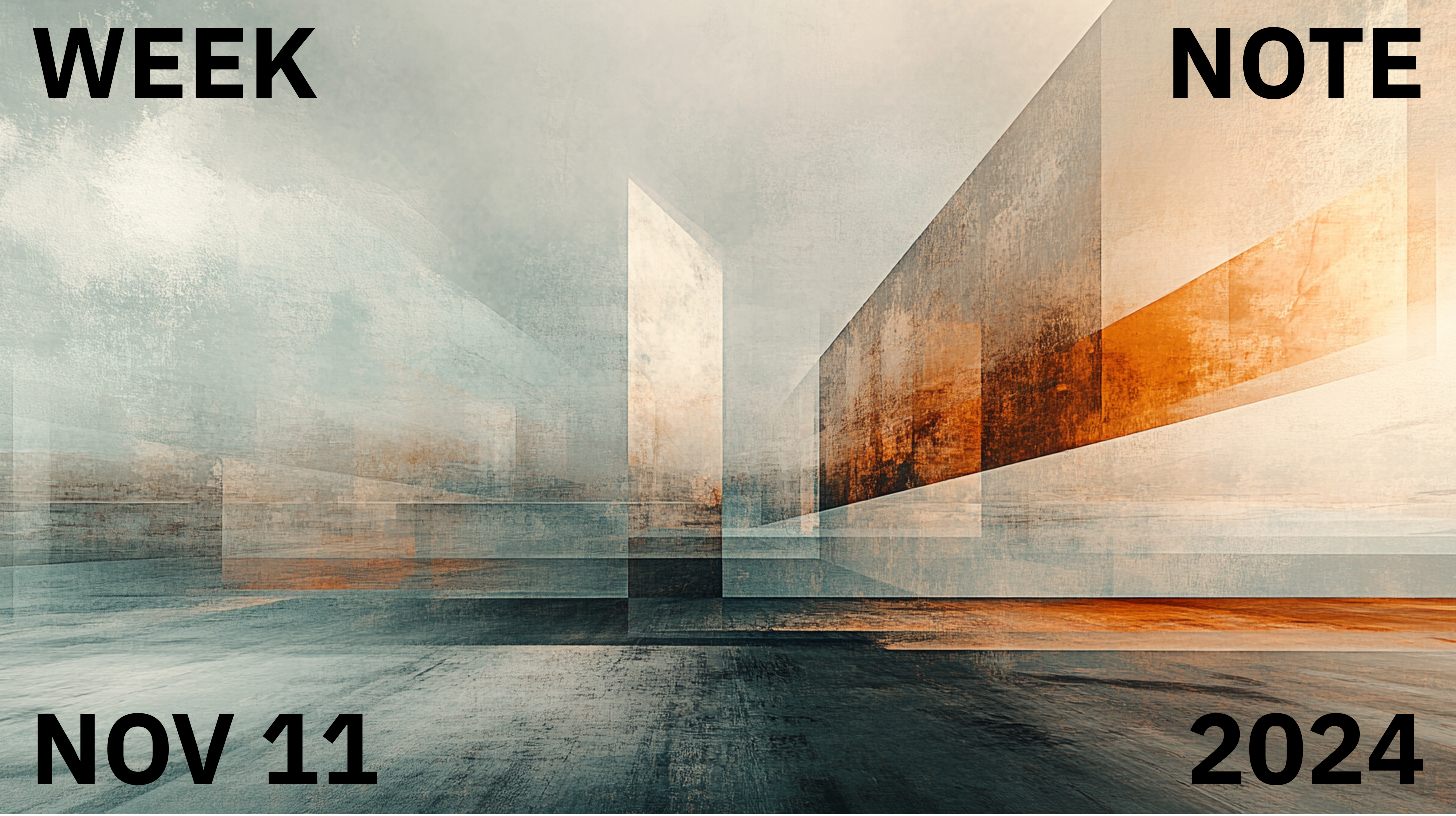1/ Eli Pariser from New Public published an open, collaborative bibliography as a Google Doc to collect what people are reading to understand the 2024 election. I love this pattern (although I hate that it often requires a disaster to spark it): after a crisis, you'll often see Google Docs pop up to help people find resources and share information.
Elan Ullendorff calls this the "Doc Web" and offers a set of axioms.
This is one of the reasons why I'm encouraged by the development of creative tools that make it easier for more people to build and express their ideas. Robin Sloan writes that an app can be a home-cooked meal as he describes his journey building a small app for his family.
With Claude, ChatGPT, Gemini, and friends, more people now have the tooling to cook up something wonderful.
Matt Webb writes about his experience building an iOS app that points to the center of the galaxy. Like Matt, I'm not a developer, but I did build a functioning iOS app that I call "Walk and Talk" the other week. It's a simple app on your phone that lets you record a voice note, and then gives you a nice summary along with a cleaned up transcript. It's silly. It's simple. But it did scratch a particular itch.
If you haven't built an app before - why not go for it?
2/ Kate Brown, MIT professor, talks about the role of community gardens in combatting climate change.
I love her description of these gardens as a coral reef.
3/ Scientists at UC Berkeley have developed a powder that can suck CO2 out of the air. Don't give up.
4/ As expected, there's another Twitter / X exodus. This time, people are signing up for Bluesky.
According to the New York Times, Bluesky gained over one million new subscribers in the week since the election. They now have ~15 million users. In contrast, Threads has 275 million monthly active users, Twitter has over 500 million monthly active users, and Facebook and Instagram each have over 2 billion monthly active users.
I'm encouraged by many of the small, but meaningful innovations that Bluesky has popularized. However, this is still a Twitter clone. We're still just playing around with variations on a theme and celebrating who is part of the conversation in these different platforms. There's a much bigger design space around reimagining what social networks / platforms / protocols / experiences actually look and feel like.
5/ John Maeda talks about what it means to embrace the hybrid path.
My friend, Mel, shared with me materials from a workshop she gave years ago on navigating multifaceted careers.
Both John and Mel have helped me see my own path in a warmer light.
Here's to a life of curiosity, creativity, connection, consideration, and celebration.

